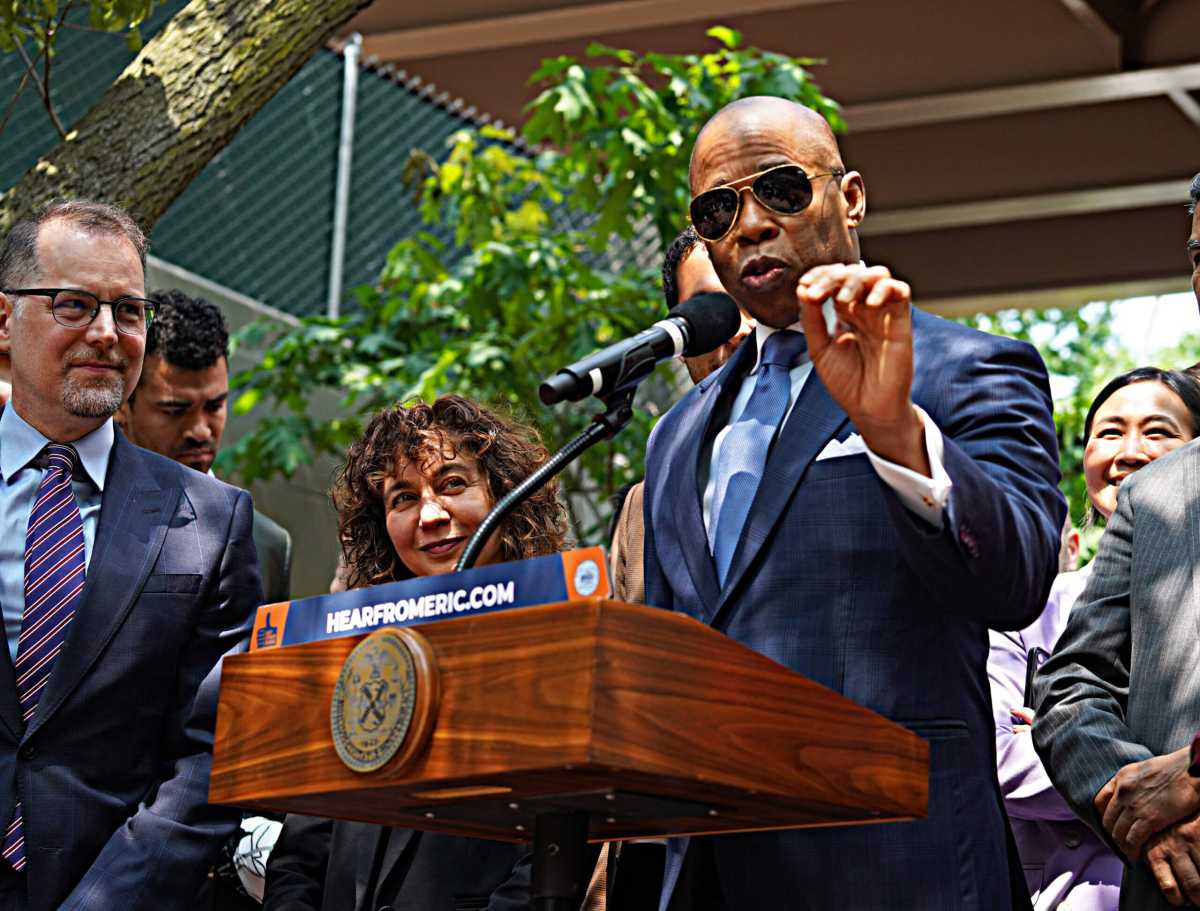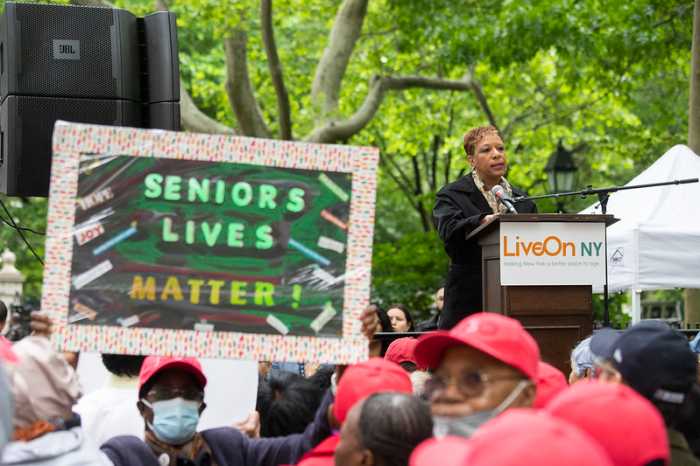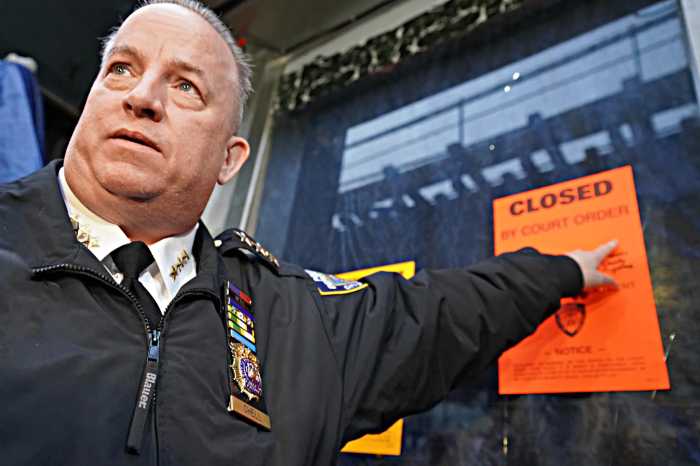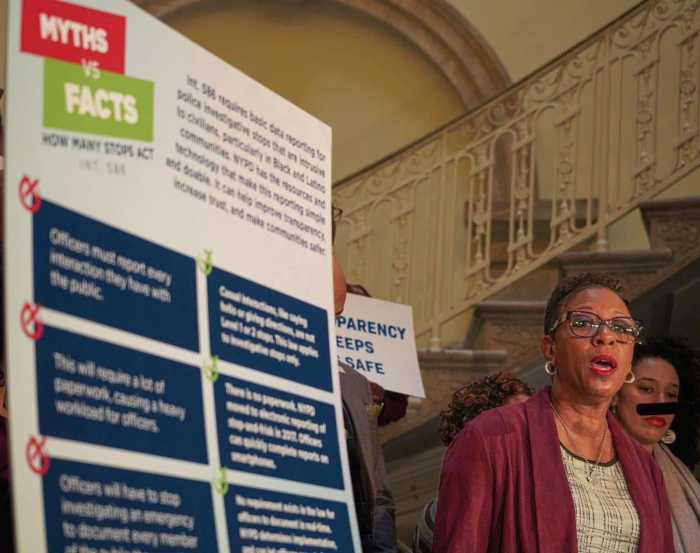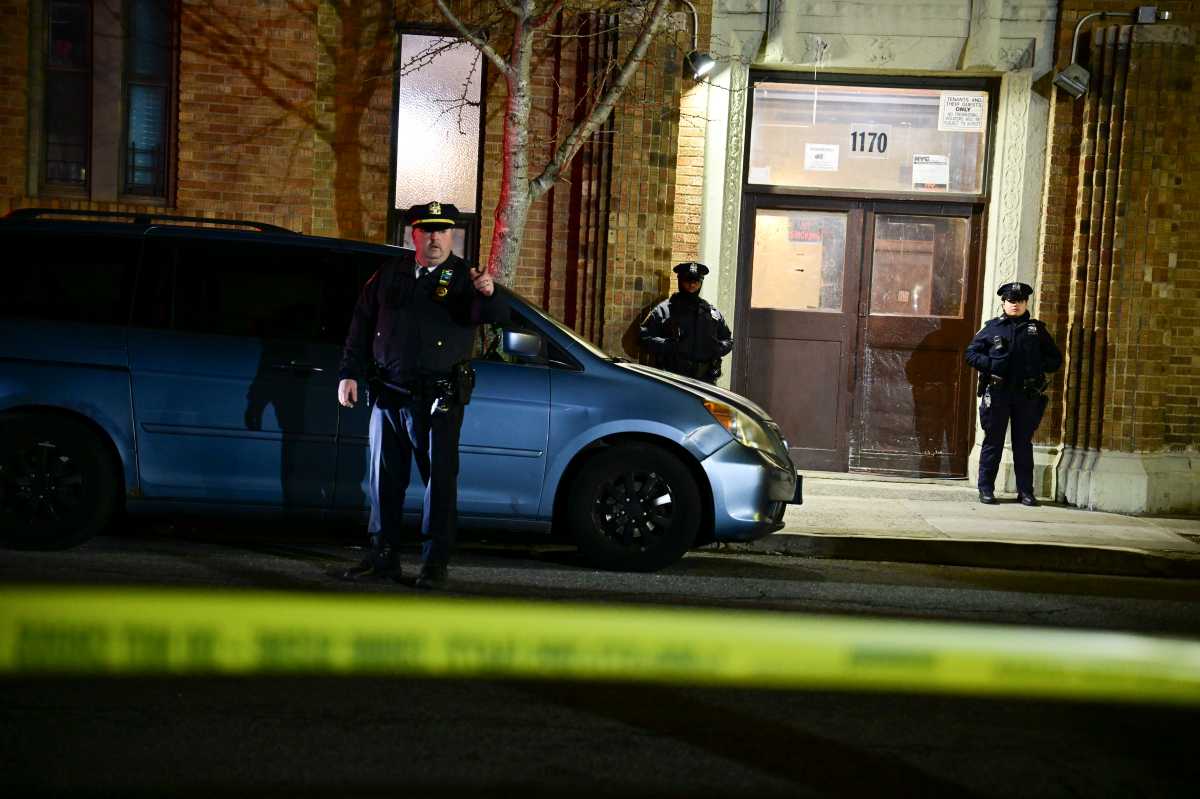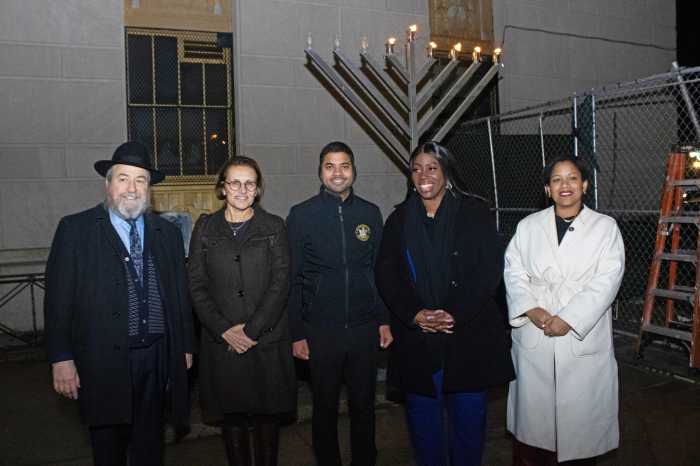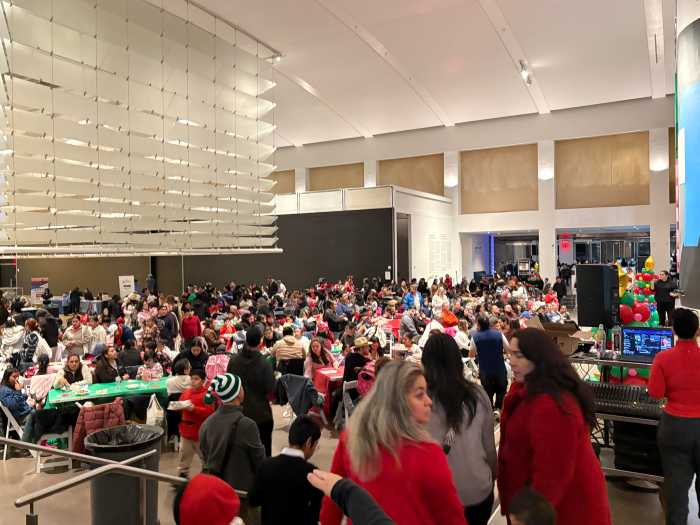Mayor Eric Adams rebuffed on Wednesday criticisms of his administration filing a legal motion with a Manhattan judge late Tuesday afternoon to suspend the city’s right-to-shelter requirements amid the ongoing migrant influx, saying the city has “done its share” and is asking for “clarity” from the court.
With more than 70,000 migrants having already gone through the city shelter system’s intake process, and 44,000 currently in its care, Adams said there’s no room left to accommodate additional migrants in shelters or the network of over 100 emergency facilities it has erected.
Therefore, City Hall is seeking changes to the original court decision that established the right-to-shelter law — the 1984 Callahan v. Carey consent decree — to exclude single adults and adult couples from the requirement that the city provide shelter to anyone seeking it when it “lacks the resources and capacity” to do so.
During an unrelated press conference Wednesday morning, the mayor responded to criticism of the legal action by noting his administration has done a “remarkable job” handling the migrant crisis and those who haven’t dealt with a similar situation are “sitting on the sidelines” criticizing him.
“Anyone who has managed crises before would look at this and state, ‘this is a remarkable handling of a crisis,’” the mayor said. “Those who have not managed crises are sitting on the sidelines talking about what should be done while we’re on the field doing it. And so we are now seeking clarity from the courts to really deal with this issue that is a national problem.”
The Tuesday motion followed Adams earlier this month passing an executive order to temporarily suspend parts of right-to-shelter relating to the timeframe in which individuals must be given a bed after requesting shelter and to allow for families to be housed in congregate settings.
The motion was quickly met with criticism from City Council Speaker Adrienne Adams and Deputy Speaker Diana Ayala, as well as city Comptroller Brad Lander, when the administration publicized it Tuesday.
The speaker and Ayala, in a joint statement, called the motion “troubling” and said it’s “beyond disturbing” that Adams’ office is focussed on changing right-to-shelter instead of implementing solutions the council has recommended, including making it easier for homeless individuals to access housing vouchers.
A matter of resources
Adams repeated a refrain he’s often cited since declaring a state of emergency over the influx of migrants last October — that this is the federal government’s problem and Washington should be providing the city with significant resources to manage it.
Without those resources — including additional funding, expedited migrant work authorizations and a national strategy for spreading asylum seekers throughout the country — Adams argues that the city can’t provide for any additional newcomers.
The administration has estimated the cost of the crisis could amount to $4.3 billion by next July, or even exceed that figure, if the heightened levels of migrants who’ve arrived in recent weeks continues. The most recent surge of mostly Latin American migrants, Adams’ office says, resulted from the lapse of a pandemic-era public health rule that limited immigration into the U.S. — known as Title 42 — expiring earlier this month.
The city’s right-to-shelter law is unique among American cities. And while it’s been on the books for many years, it’s never been fully codified.
In response to a statement from the Legal Aid Society and Coalition for the Homeless where the two groups vowed to “vigorously oppose” the motion, Adams said they have their prerogatives and he has his own.
“The mere fact I disagree with them, I see the role that they play,” Adams said. “We need both sides of the legal apparatus of the city, and I strongly support it. I disagree with them. The courts will make the decision.”
In a Tuesday night statement, Adams said the motion isn’t seeking to end the right-to-shelter, but rather to provide clarity on a decades old court decision made well before the city was inundated with migrants coming in the tens of thousands. But he wouldn’t weigh-in on the exact goal of the legal action when asked by reporters if it will leave people to sleep on the street or if it will apply to New Yorkers who were already here in addition to new arrivals.
“When things are in court, I allow the court and our legal team to do that,” Adams said. “Placing my opinions on something that’s in court is not appropriate. It’s in court, the courts will decide how we move forward.”
Fears of ‘unintended consequences’
During a separate press briefing later Wednesday, where Adams administration officials took questions from reporters without the mayor present, his chief counsel Brendan McGuire also declined to go into much detail. While repeating the administration isn’t seeking to end right-to-shelter, he did say it is looking to give itself “flexibility” in housing people before the current system collapses.
“There are a set of laws and regulations that govern the way that the homelessness population has to be treated here in the city,” McGuire said. “And so the idea here is to think responsibly and holistically about what currently governs this crisis? And what can we do to ensure that, to the extent there are restrictions, that can be revisited, that may make it more feasible for us to avoid this system, in its entirety, from buckling under its own weight.”
But Ayala told amNewYork Metro the move from City Hall is counterintuitive and will have “unintended consequences.”
“I don’t see how doing away, even temporarily during this crisis, with that specific policy that will prevent singles and adult families from seeking shelter, is going to work,” she said. “I worry that what we’re doing is creating opportunities for more tents to pop up at the local park … So [it’s] kind of counterintuitive at this point.”
Read more: Knicks’ Future: Should They Move On from Coach Thibodeau?



